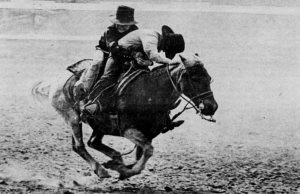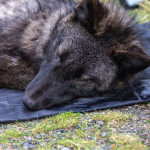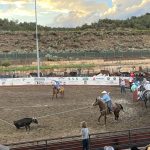What kind of vet care should ranchers be compensated for after wolf-livestock conflict?
Colorado Parks and Wildlife Commission initiates a rulemaking to look at one small part of how it compensates ranchers for wolf-related losses
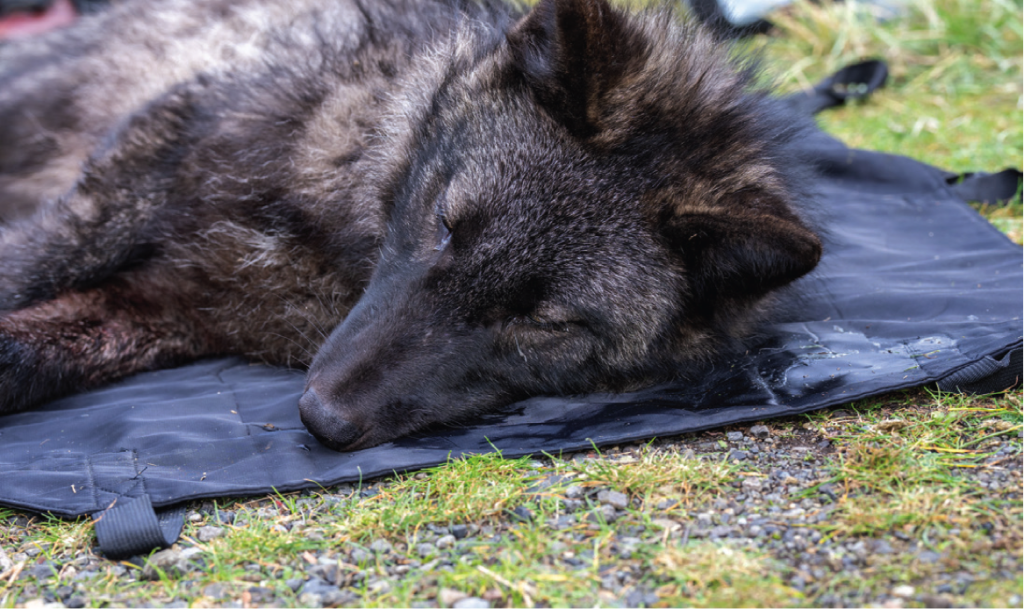
Colorado Parks and Wildlife/Courtesy Photo
A North Park rancher’s request for reimbursement following wolf-related livestock losses spurred Colorado Parks and Wildlife’s Commission to take another look at how the state is compensating producers for veterinarian care.
On Thursday, May 8, the commission unanimously voted to consider changes to its rules around wolf-related compensation and vet care. The board initiated a rulemaking, which means after Parks and Wildlife staff review the changes requested, the matter will come back before the commission for a public hearing. The commission set no deadline for the rulemaking, but the state agency is required to alert the public before the hearing is held.
The vote followed a robust discussion on Wednesday around a claim Parks and Wildlife received from Don Gittleson.
According to Travis Black, Parks and Wildlife’s northwest regional manager, agency staff confirmed two wolf-related incidents last year. The total reimbursement requested by Gittleson was $2,542.41, according to Black.
In one of these cases, a female cow was injured and required care. In his claim, Gittleson requested $435 for the vet care he personally provided to the injured cow under the guidance of a veterinarian.

Support Local Journalism
“This was not an animal that I needed to treat once or twice,” he said. “This took a little over three months to get her back to where she would be sound and we weren’t going to have a problem with her.”
This number was based on a $15-an-hour labor cost for time spent administering direct care to the animal, he said.
“You’d have been paying me quite a bit more for this animal had the vet come out and take care of this,” he said. “Instead of doing it myself, you’d be paying quite a bit more for it.”
For losses from wolves, Colorado ranchers are eligible for compensation up to $15,000 per animal from the state’s Wolf Depredation Compensation fund. These funds cover not only direct losses of livestock and working dogs by wolves, but also indirect losses related to the predator’s presence on the landscape — the latter of which can include impacts on livestock conception rates and weight. Ranchers can also receive compensation for missing livestock in large, open range settings once a wolf depredation has been confirmed.
Under the agency’s current regulations, only expenses from “licensed veterinarians” are eligible for reimbursement. The rule limits expenses to $15,000 or the fair market value of the animal, whichever is lower. The rulemaking initiated on Thursday will look specifically at this regulation.
The challenge surfaced by Gittleson’s claim is that in rural parts of the state, limited access to veterinarian services means that many producers provide care themselves.
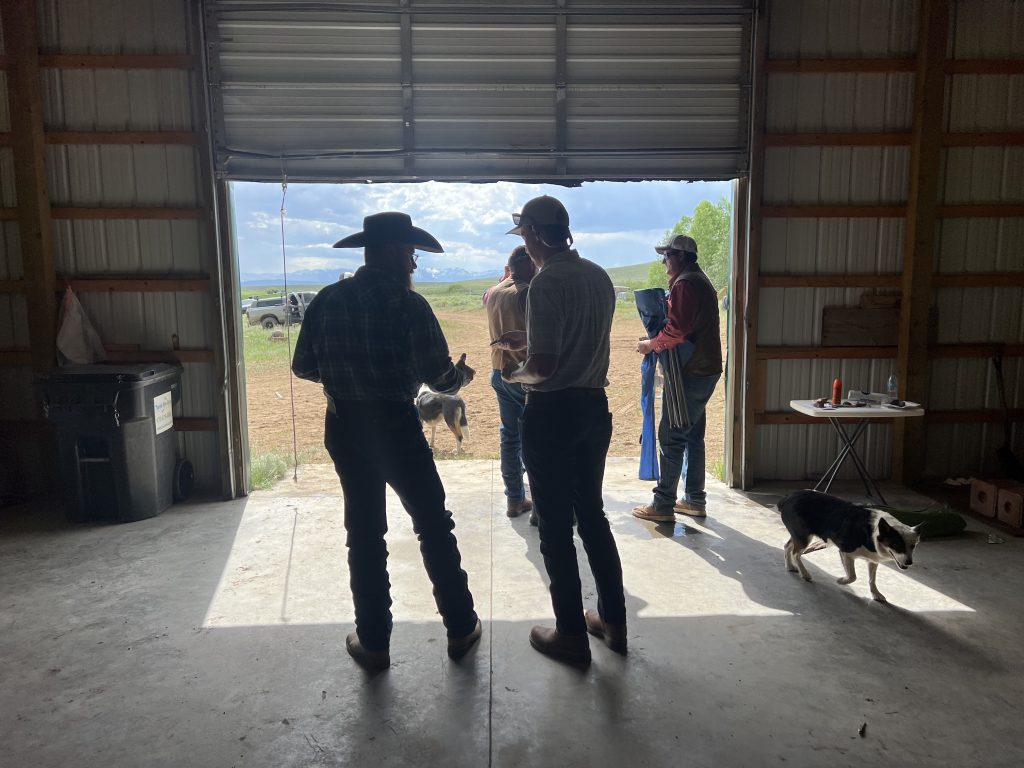
“As cattlemen in Western Colorado and all of Colorado, we are our vets 90% of the time because that’s the access that we have and also the monetary means that we have,” said Commissioner Tai Jacober, who operates a ranch in Carbondale. “I think that we need to figure out a way within our statute to allow for labor as veterinary services to be done by the ranchers themselves because that’s how we do take care of it.”
Many commissioners agreed that the situation presented a challenge with how the current regulations define veterinarian care. Commissioner Jay Tutchton likened it to what constitutes an expert in a court hearing.
“Someone can be an expert, which is what a veterinarian is, essentially, by education or experience,” Tutchton said. “I think we should modify that regulation to veterinary care provided by a certified, educated person or an experienced person because we do want to encourage this kind of self-help that saves us money, saves animals’ lives, and is just the reality on the ground.”
However, commissioners were cautious that any rulemaking change would narrowly target this vet care issue.
“I think it’s also important that we keep this surgically focused on this one rule without having an effect or an impact on any other rules because it was obvious yesterday to me that this is a flaw, that we have an inefficiency,” said Chairman Dallas May on Thursday.
Commissioners recommended changes that would allow for ranchers to be compensated for care provided under the direction of a certified vet as well as limits on the expenses.
“I think our producer here today was very reasonable,” said Commissioner Murphy Robinson. “But I also worry about those who aren’t so reasonable, who would send up a claim with hundreds of dollars an hour for labor and what they believe their hours are worth.”
Robinson recommended carefully defining the labor that could be compensated and setting a floor and ceiling for a reasonable hourly rate.
On Wednesday, the commission voted to table Gittleson’s claim until they resolve the regulatory matter. Thursday’s vote to initiate the rulemaking will put the issue to Parks and Wildlife staff for evaluation before the commission considers any official changes.
Parks and Wildlife is also undergoing a stakeholder process to improve how wolf-related damage claims are submitted and reviewed. According to Jeff Davis, the agency’s director, it is working with Colorado State University to determine what livestock data and records are needed for these claims. The process will also include a workgroup with these experts, producers and wolf advocates, Davis said.
He added that the process comes at the request of state cattlemen’s and woolgrowers’ associations, who are looking for standardization, so the claims “are more readily pulled together and more proficiently processed and more defensible to questions, more digestible by the commission, by the agency, by the broader public, too.”
Since reintroducing wolves in December 2023, Parks and Wildlife has confirmed 23 wolf-related depredation incidents. This includes four incidents this year: two in Jackson County, one in Pitkin County and one in Eagle County.

